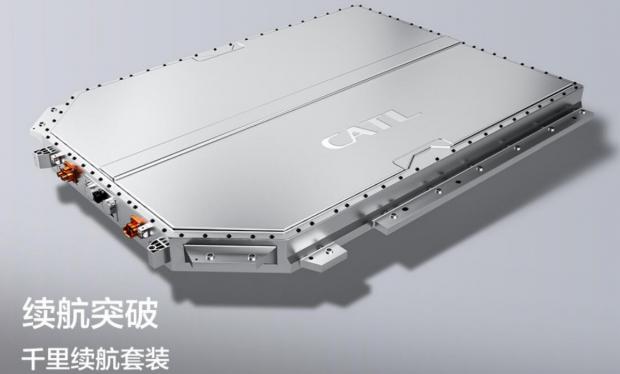
Breaking News
 Canada's Organ Harvesting just got EXPOSED, and it's Satanic | Redacted News
Canada's Organ Harvesting just got EXPOSED, and it's Satanic | Redacted News
 "GRAVE CONCERNS" CRITICAL TO SUPPLYING THE NATIONS FOOD SUPPLY
"GRAVE CONCERNS" CRITICAL TO SUPPLYING THE NATIONS FOOD SUPPLY
 Video Contradicts DHS Claims About Killing of Alex Pretti
Video Contradicts DHS Claims About Killing of Alex Pretti
 Teslas now require a subscription for features standard in a base Kia
Teslas now require a subscription for features standard in a base Kia
Top Tech News
 Researchers who discovered the master switch that prevents the human immune system...
Researchers who discovered the master switch that prevents the human immune system...
 The day of the tactical laser weapon arrives
The day of the tactical laser weapon arrives
 'ELITE': The Palantir App ICE Uses to Find Neighborhoods to Raid
'ELITE': The Palantir App ICE Uses to Find Neighborhoods to Raid
 Solar Just Took a Huge Leap Forward!- CallSun 215 Anti Shade Panel
Solar Just Took a Huge Leap Forward!- CallSun 215 Anti Shade Panel
 XAI Grok 4.20 and OpenAI GPT 5.2 Are Solving Significant Previously Unsolved Math Proofs
XAI Grok 4.20 and OpenAI GPT 5.2 Are Solving Significant Previously Unsolved Math Proofs
 Watch: World's fastest drone hits 408 mph to reclaim speed record
Watch: World's fastest drone hits 408 mph to reclaim speed record
 Ukrainian robot soldier holds off Russian forces by itself in six-week battle
Ukrainian robot soldier holds off Russian forces by itself in six-week battle
 NASA announces strongest evidence yet for ancient life on Mars
NASA announces strongest evidence yet for ancient life on Mars
 Caltech has successfully demonstrated wireless energy transfer...
Caltech has successfully demonstrated wireless energy transfer...
 The TZLA Plasma Files: The Secret Health Sovereignty Tech That Uncle Trump And The CIA Tried To Bury
The TZLA Plasma Files: The Secret Health Sovereignty Tech That Uncle Trump And The CIA Tried To Bury
China's Zeekr Claims New LFP Battery Adds 310 Miles Of Range In 15 Minutes

Premium electric car brand Zeekr, which is owned by China's largest privately owned automaker Geely Holding Group, has unveiled a new lithium iron phosphate (LFP) battery cell and pack that supports ultra-fast charging.
Developed entirely in-house, the new LFP battery is said to add 310 miles of range in 15 minutes, thanks in part to an 800V electrical system. Zeekr claims the charging performance of the new batteries "outperforms many competitors" even at low temperatures in winter.
The new battery tech will be made at a Geely-owned battery plant in the province of Zhejiang and will make its debut on the Zeekr 007 sedan. The new EV will launch in China on December 27, with deliveries to follow in January 2024.
The Zeekr 007 features a 75.6-kilowatt-hour LFP battery pack that enables a range of 427 miles on China's CLTC cycle. Zeekr's in-house developed pack is manufactured by Quzhou Jidian EV Tech, a wholly owned subsidiary of Geely Holding Group.
LFP batteries typically have lower energy density compared with nickel-manganese-cobalt (NMC) batteries at the cell level. To address that, Zeekr engineers designed the battery pack for the new LFP battery to achieve high energy density at the pack level.
Thanks to the use of newly developed materials and simplified structural design, the volume utilization of the new battery pack reaches 83.7 percent according to Zeekr; the automaker claims that's higher than what many global competitors have achieved with LFP batteries.
Zeekr claims that the increased energy density does not compromise safety, as the packs have passed six strict safety tests including nail penetration conducted by China's National Motor Vehicle Quality Inspection and Testing Center.



